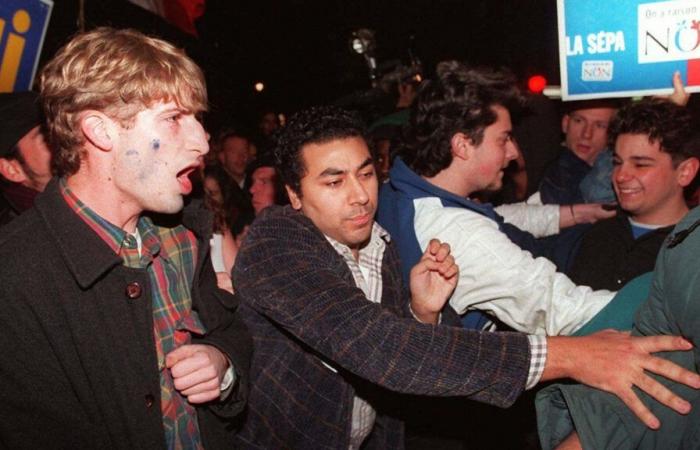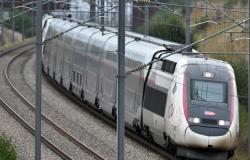“It could be reborn if the circumstances were right,” he said in 2015. “What could trigger it, I can’t say.”
Three years later, as leader of the sovereignist Parti Québécois, Mr. Lisée lost his riding and saw his party reduced to 10 seats when the Coalition Avenir Québec, led by François Legault, first took power.
The 2018 election was widely seen as proof that separatism was no longer a defining issue in Quebec politics, and pollsters speculated that the PQ’s days were numbered. The province’s new leader was a former sovereigntist at the head of a conservative-leaning nationalist party promising not to hold a referendum, and Quebecers rewarded him with a decisive majority.
“There are many Quebecers who have put aside a debate that divided us for 50 years,” Mr. Legault declared after his victory.
Today, on the eve of the 30th anniversary of the second referendum on Quebec independence (the first took place in 1980), it seems that the tide is turning again. Mr. Legault is deeply unpopular after six years in power, and the Parti Québécois, with a young and charismatic leader, has led the polls for more than a year.
It remains to be seen, however, whether the party, which promises to hold a third referendum by 2030, can breathe new life into the province’s aging independence movement.
If elections were held today, polls indicate that the Parti Québécois would easily obtain a majority. Its leader, Paul St-Pierre Plamondon, 47, an Oxford graduate, has injected youthful energy into a party on the verge of extinction.
Émile Simard, leader of the PQ’s youth wing, believes the party’s popularity will renew the appetite for independence in Quebec. He grew up in a sovereignist family in the Saguenay-Lac-Saint-Jean region and took out his membership card at the age of 16.
Now aged 22, he believes that the reasons for independence have changed somewhat since the 1995 referendum, in which the “no” vote narrowly won. He particularly mentions climate change.
“It doesn’t make sense that as Quebecers we contribute billions of dollars every year through our taxes, and then invest heavily in Alberta’s fossil fuels.”
– Émile Simard, president of the National Youth Committee of the Parti Québécois
SEE ALSO | Incursion among Generation Z sovereignists
But polls suggest the PQ’s rise has yet to boost support for independence, which has hovered around 35% for years.
“One of the main weaknesses of the independence movement in Quebec is that it does not resonate with the younger generation,” said David Heurtel, political analyst and former Quebec Liberal minister.
“Independence in Quebec, in the 60s, 70s, 80s and even 95s, was the hip thing for the young generation. This is no longer the case today.”
– David Heurtel, political analyst and former minister
Mr. Simard was not born until several years after the 1995 referendum. In fact, he points out, no Quebecer under the age of 47 has ever voted for independence. He believes young people support the status quo because they have never seriously considered an alternative.
“For them, this remains a hypothetical debate,” he said.
Mr. Simard believes that a referendum campaign would force young people to think more deeply about the issue. “It is obvious to me that we should give ourselves the opportunity to speak out on this issue,” he said.
Although young Quebecers are not particularly sovereignists, they are not particularly federalists either, said Charles Breton, executive director of the Center of Excellence on the Canadian Federation at the Institute for Research on Public Policy.
“They just don’t know, and part of the reason is that we haven’t addressed this issue,” he said.
Mr. Breton fears that if a new independence movement emerges, many Canadians will only react with a shrug of the shoulders. In 1995, some 100,000 people gathered in Montreal during the unity rally, to encourage Quebecers to vote “no”.
But this time, argued Mr. Breton, “who would lead the “no” team in Quebec and who would be the voice in the rest of Canada to try to keep Quebec within the fold of the Union?”
The prospect of a conservative federal government looms over any conversation regarding Quebec independence. According to Mr. Heurtel, a change in Ottawa could harm the PQ’s prospects, because the leader of the Conservative Party, Pierre Poilievre, favors a less interventionist approach towards the provinces.
“Mr. Poilievre will not be the same type of enemy for nationalists and sovereignists to exploit, while (Prime Minister Justin) Trudeau is a much better target,” he said.
But Mr. Simard said a Conservative government in Ottawa coupled with a Trump administration south of the border could push the idea that Quebec is better off alone.
“Is this the kind of Canada that interests us, a Canada where values like the environment […] are put aside?” he said.
According to Mr. Breton, it is difficult to imagine Mr. Poilievre, who remains unpopular in Quebec, as the spokesperson for unity during a campaign for a third referendum. Mr. Trudeau is better suited to fulfill this function, according to him.
He’s not the only one who thinks so. Eddie Goldenberg, chief of staff to former Prime Minister Jean Chrétien, wrote an op-ed in October calling on Mr. Trudeau to step down as prime minister and prepare “to play a leading role in defending the interests of Canada in a possible referendum on the independence of Quebec.
As things stand, the sovereignist Bloc Québécois could well form the official opposition for the first time since 1993 in this year’s federal election, which appears likely to decimate the Liberals. Adding a PQ victory in 2026 could give the independence movement more weight than it has had in decades.
However, it is possible that the PQ could face a challenge from the provincial Liberals, who will launch a leadership race this month. Pablo Rodriguez, former minister in the Trudeau government, is considered the favorite.
Mr. Heurtel said the PQ was in part just a “parking lot for the opposition” to the government, and that could change with a new Quebec Liberal leader. He also noted that many federal Liberal staffers may soon be looking for jobs and could help “rebuild and reorganize” the provincial party.
For now, Breton said, independence is still not “people’s main concern.” But it appears the next Quebec election could again be fought over the same old issue that was pushed aside in 2018.
“I am convinced that a referendum is imminent and that the population is ready,” said Mr. Simard. “I think it is time to write the end of this chapter in Quebec.”






